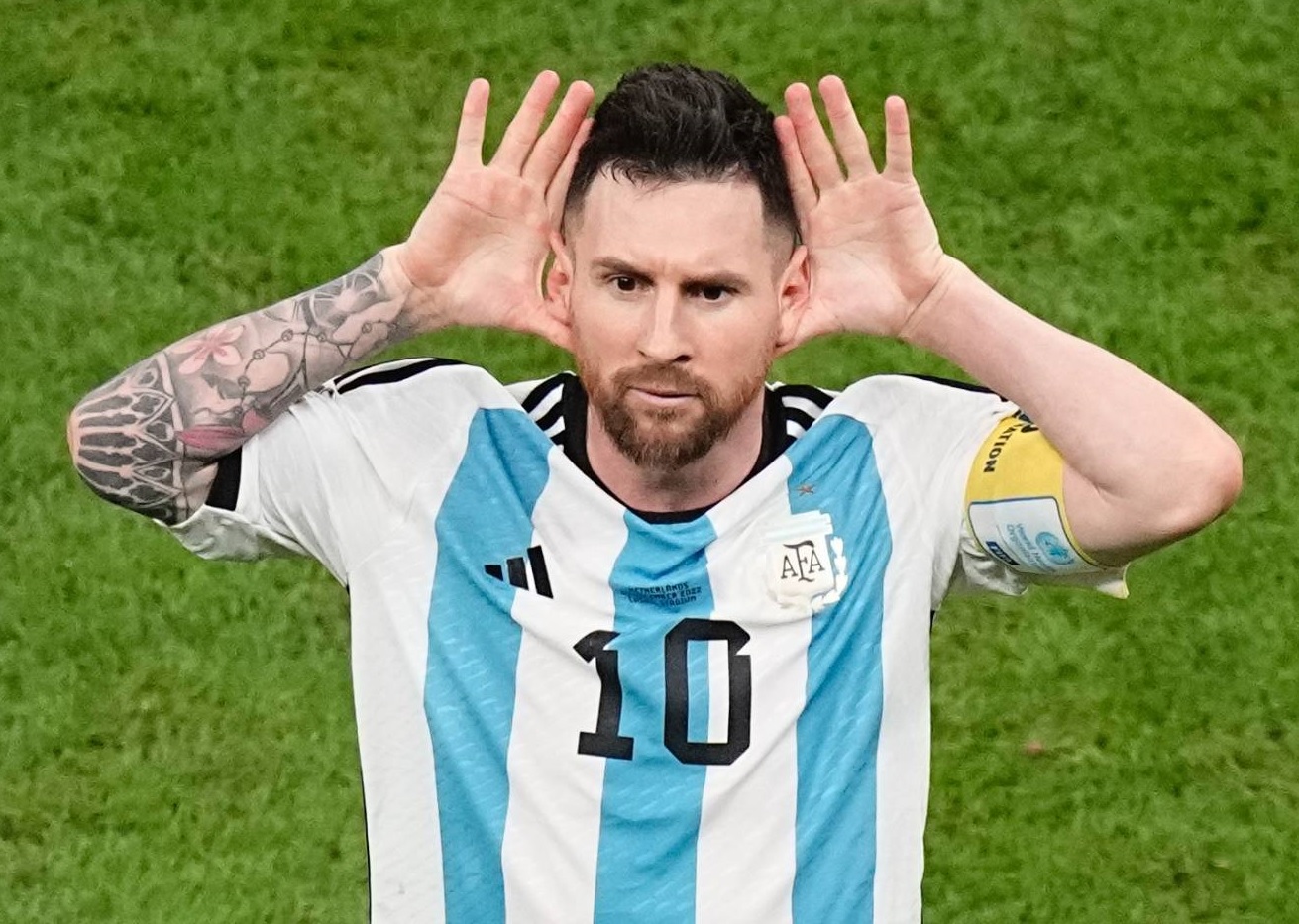Messi is king!
The South Americans held their nerve in a penalty shootout to defeat France in one of the all-time great World Cup finals with Lionel Messi scoring twice.
Messi capped his record-breaking career by winning football’s biggest prize with a performance that will go down in World Cup history, scoring a first-half penalty and netting again in extra time.
After spending a decade working day and night, Messi has finally brought Argentina their World Cup. It’s been an adventure that began in 2006, and the Argentine no.10 finally has the third star on his shirt for his journey to victory. From the 64th minute onward, in ’85 when he was sent off against Hungary, to penalty kicks in the end where if it could go any longer without him winning the world’s greatest prize, it would have been perfect.
It will be Messi’s World Cup in 2022, much as Mexico was Diego Armando Maradona’s World Cup in 1986. The no.10, as in 1986, is the pivot around which the team revolves.
While Messi was world champion, which he had dreamed of, he also finished with seven goals, which weren’t enough to win the Golden Boot. Only Brazil’s Jairzinho managed to score in all seven matches in 1970, and he failed to score against Poland.
The brace, the second of his 26 World Cup appearances, has now become part of his legend, a part of football history.
It happened with Kempes (1978), Garrincha and Vava (1962 when it was a shared award), and it came close to happening in Doha, but ultimately went to Mbappe.

The comeback of Mbappe
So it’s no surprise that Messi won the Golden Ball, succeeding Luka Modric as the best player of the tournament. As a result, the award returns to a player from the winning country after Romario won it in 1994. Since then, Kahn (2002), Zidane (2006), Forlan (2010), Messi (2014), and Modric (2018) have all won it.
In what was the final between the king and the heir to his throne, Mbappe, there were fireworks. Although Argentina gave their leader everything, Mbappe had little to lean on in what was a French shipwreck. A minute later, Mbappe had unleashed a storm, scoring two goals that turned the final around and put him on course for the Golden Boot. The world’s king could still sink Argentina, Messi and proclaim himself king.
A final act was missing between these two giants. Messi seemed to have won it when it seemed impossible. The ball that slipped just over the goal line, just enough to indicate the word goal on Marciniak’s watch, seemed to have decided the World Cup and the Golden Ball, but not the Golden Boot, which went to Mbappe with three goals in the final, something England’s Hurst could only accomplish in 1966.
After scoring eight goals at the World Cup, Mbappe has reached 12 goals in his career. Klose’s 16 seems to have expired at 23 years old. As of now, Mbappe has already scored one more goal than Pele in his four World Cups, between 1958 and 1962. A minor prize for Mbappe, who lifted France and scored his penalty.
Since 1982, when FIFA created the award, Argentina has had the most World Cup Golden Ball winners: Maradona (1986) and Messi (2014 and 2018).
The Golden Glove went to Martinez and honours went to Enzo Fernandez for his revelation
Emiliano Martinez’s save at the end of extra time will go down in history as one of the greatest saves in history. Argentina’s success was multiplied with the Golden Glove award (Enzo Fernandez) and the best young player award (Enzo Fernandez).
England won fair play.
From: Beutee

